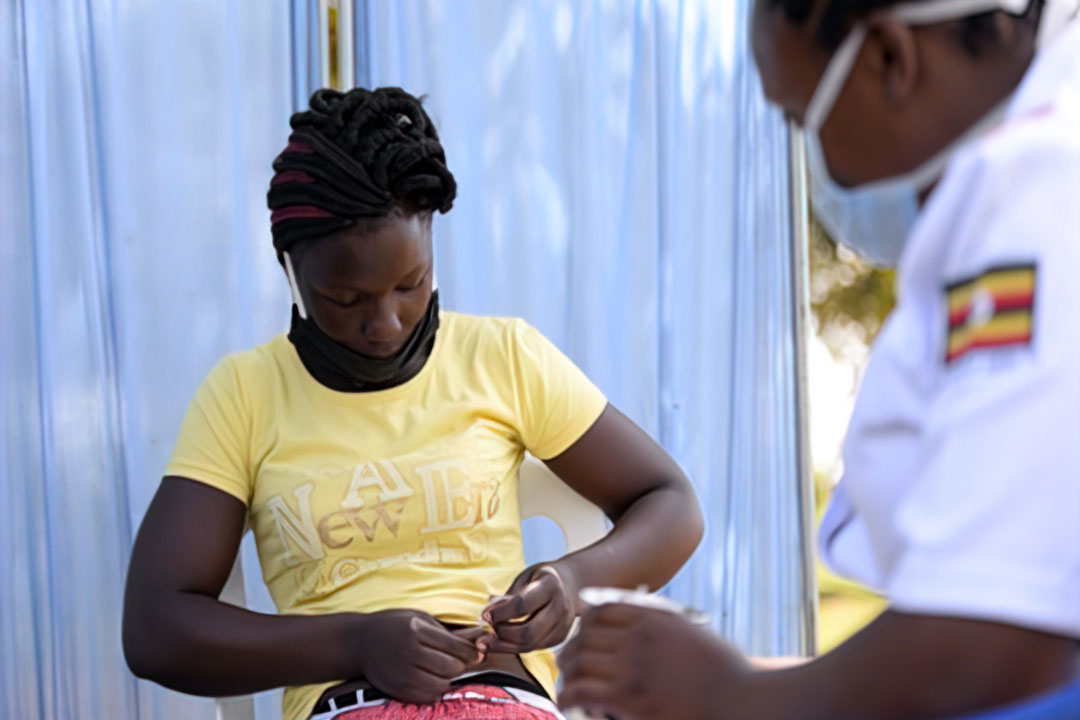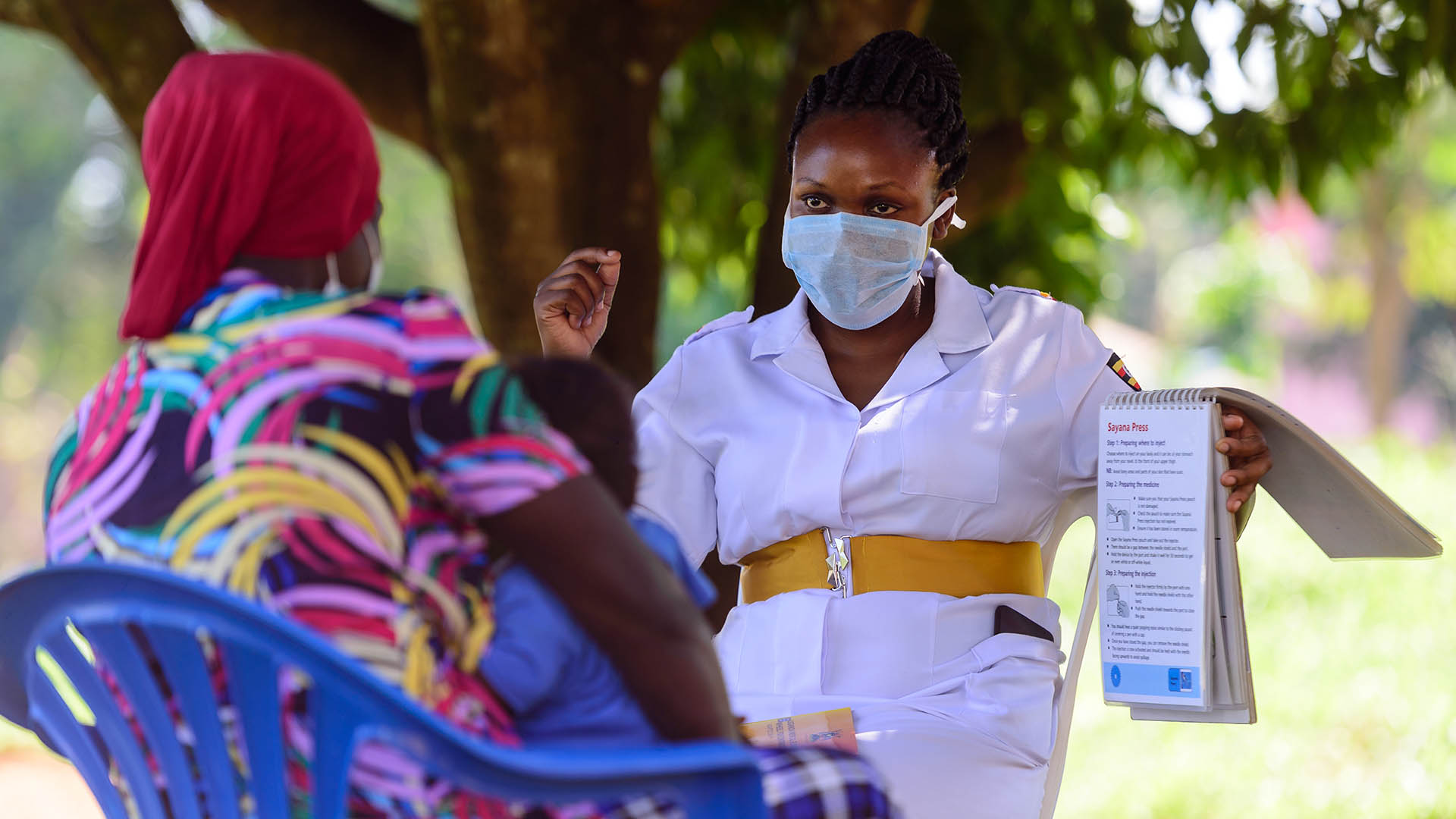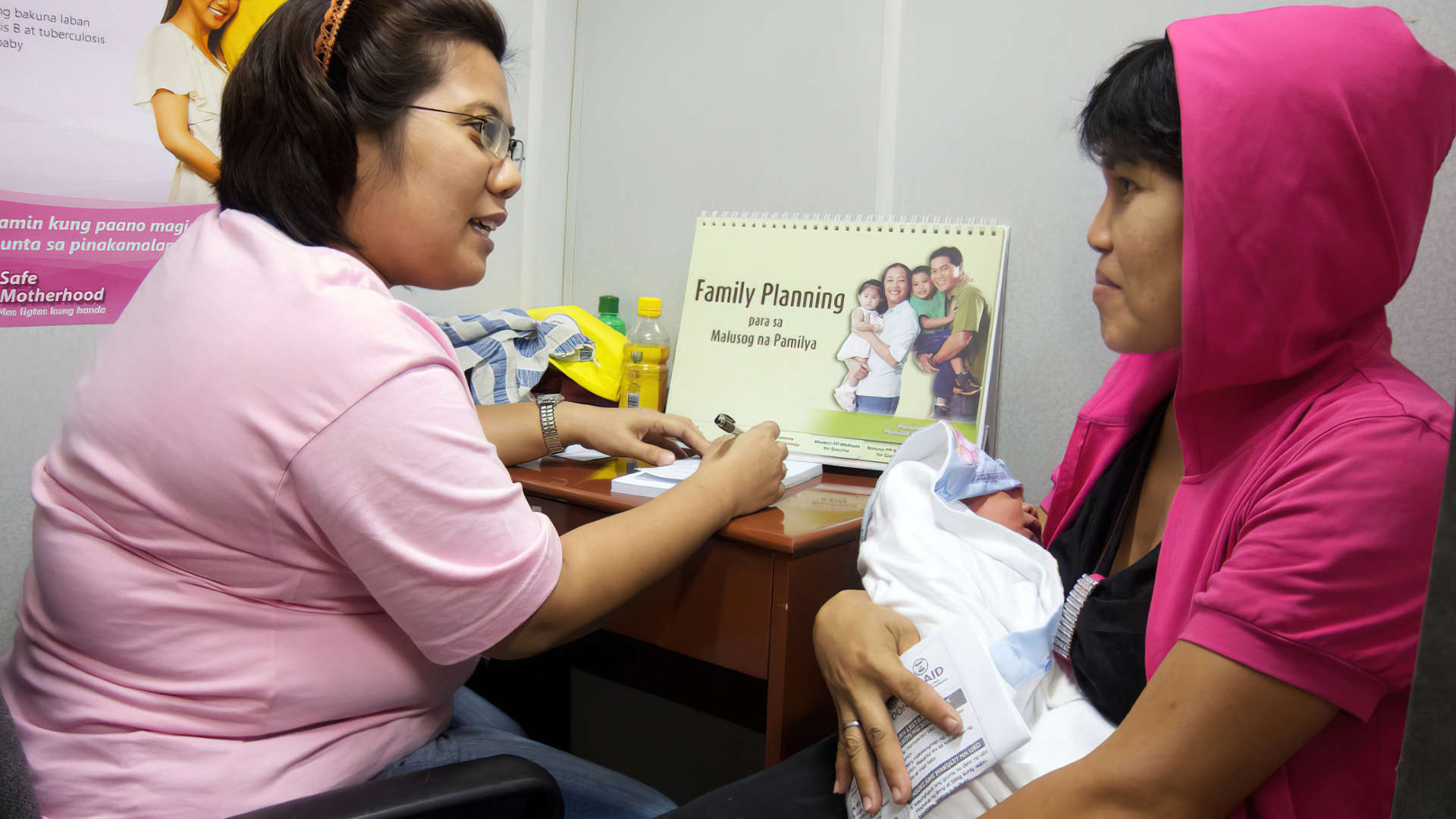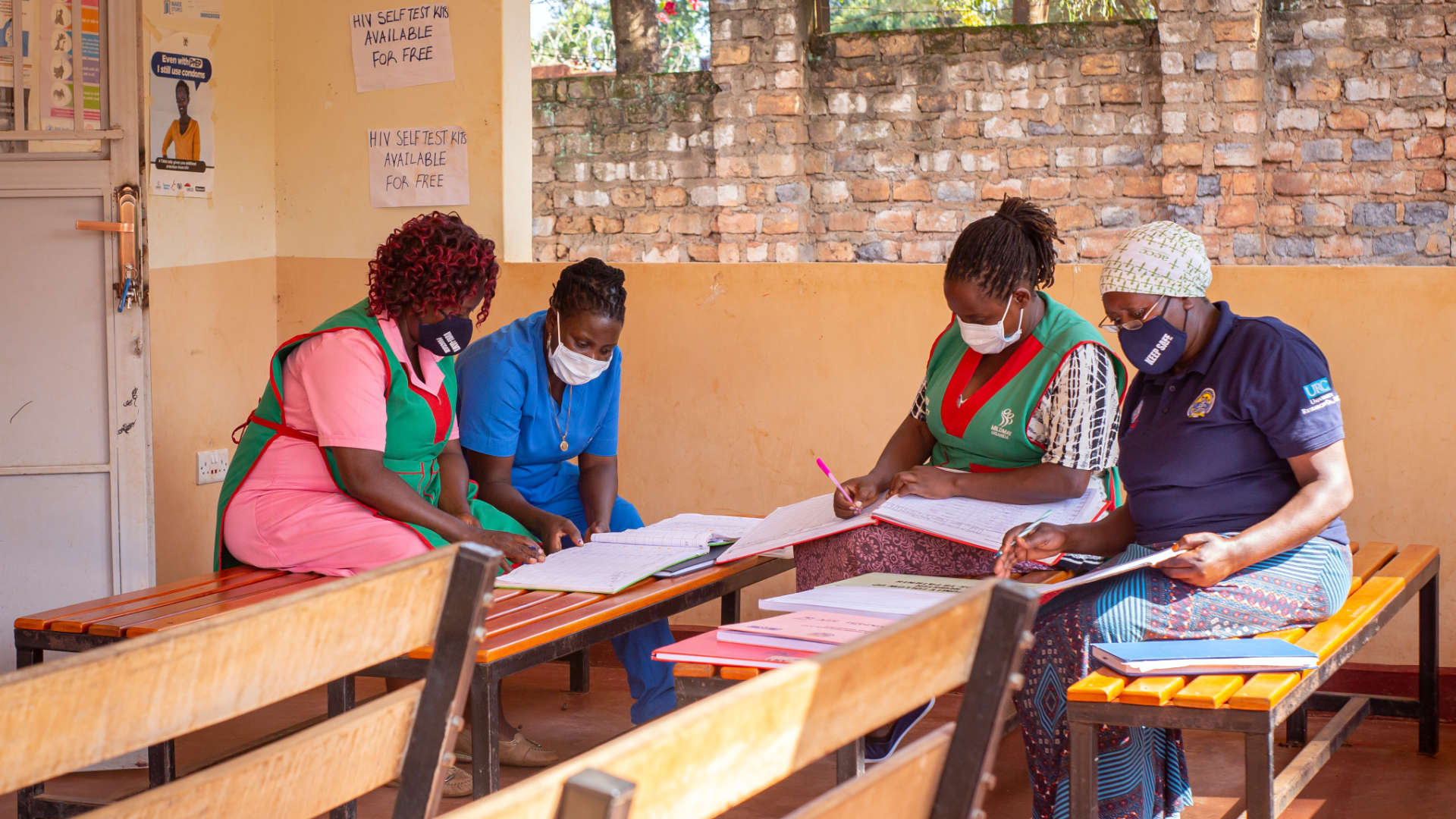Florence, 25, a mother of five children from Iganga District, Uganda, married at 17. Until recently, she had never used any family planning method because she was apprehensive about the possible side effects.
“I used to hear other women complaining about over bleeding and irregular menstruation periods, and barrenness, (so) I was afraid,” Florence said. “I also wanted to ask the health workers if this was true, but I found long queues of waiting patients every time I visited the health center to address my concerns, so I gave up.”
Building Trust through the Community
In June 2020, Elizabeth, a volunteer community health worker commonly known as a “village health team member” in Uganda, visited Florence at her home. Elizabeth is one of 15 VHTs in Nambale Subcounty in Iganga District.
Village health teams (VHTs) serve as the first point of contact between the population and the health system. VHTs were established by the Uganda Ministry of Health to empower communities to take part in the decisions that affect their health, mobilize communities for health programs, and strengthen the delivery of health services at the household level. In addition to her routine VHT training, Elizabeth was also trained by the USAID Regional Health Integration to Enhance Services in East Central Uganda (RHITES-EC) Activity to provide short-term family planning methods and counsel and refer clients who require long and permanent methods to nearby health care facilities.
Florence warmly received Elizabeth, whom she had known for five years. Florence immediately felt comfortable and intently listened as Elizabeth educated her about family planning services. “I was so confident that she would not give me something that she did not believe in,” Florence said.
Florence’s preference was for the injectable Sayana® Press, as she would subsequently be able to self-administer it. Sayana® Press can be administered by any trained (non-medical) person, including community health workers, pharmacists, and women seeking family planning services. Florence received her first dose from Elizabeth.
Taking Ownership of Family Planning
Three months later, Florence took her sick baby to Nambale Health Center III for treatment. While she was waiting, a health worker spoke to her about family planning and reaffirmed that Sayana® Press could be self-administered. After Florence’s baby received medication, the health worker taught Florence how to self-administer the injectable.
“I no longer need to go to the health care facility or VHT for family planning services,” Florence said. “The VHT delivers it home and I conveniently inject myself every three months. I have not experienced any major side effects since I started using Sayana®,” Florence said.
This and other RHITES-EC family planning interventions contributed to an improvement in new family planning users in the East-Central region: from 76,417 users during October-December 2019 to 91,789 in during July-September 2020.
Of the 5.33 million contraceptives dispensed during the 12-month period from October 2019 to September 2020, 71% were dispensed at health facilities. However, 16% were distributed by VHTs to households and 12% were dispensed during outreach visits. VHTs also accounted for an increasing share of family planning commodity dispensing during the months when COVID-19 restrictions were in effect.



